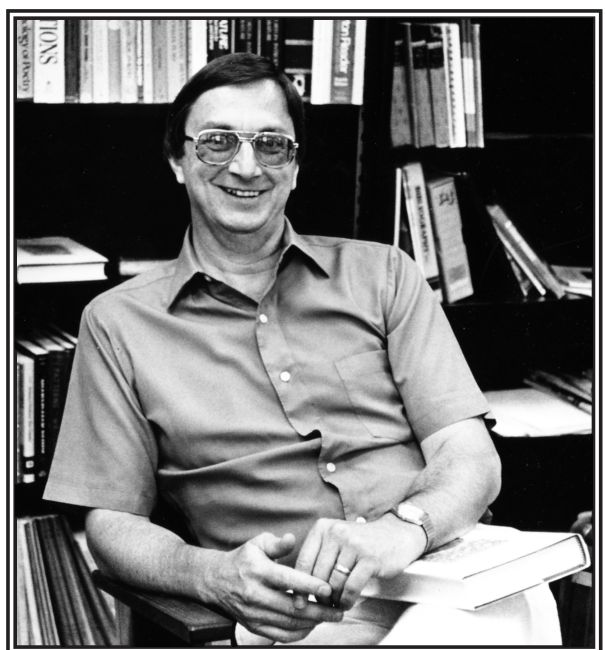DENNIS D. CAMP, PH.D.

Dec. 14, 1937 – Oct. 3, 2011
What qualities make a superior university professor: intelligence, the ability to work hard, a caring attitude for students of all ages and backgrounds, research skills, enthusiasm and aptitude for teaching, an endless curiosity about one’s field of study, as well as a curiosity about all things intellectual – the life of the mind?
Prof. Dennis Camp had these qualities in abundance. His field was English Romantic poetry, underpinned by a doctoral dissertation on John Keats from the University of Wisconsin, Madison.
Dennis came to Sangamon State University (SSU) in the fall semester, 1970. As a charter member of the SSU faculty, he had the responsibility and privilege, together with the other members of the first faculty, to shape a university curriculum, an opportunity open to few professors in the latter 20th century.
As an original member of the literature program, as it was then called, he helped plan courses for juniors, seniors and master’s degree students in an experimental university without freshmen and sophomores. The university’s mandates were to blend the liberal arts with professional courses, and to be Illinois’ public affairs institution of higher education. These seemingly exclusive requirements presented no small task to a teacher with a bachelor’s, master’s and doctorate in English. It is noteworthy that Dennis started his undergraduate studies as a major in chemistry at Hope College in Michigan but switched majors to English literature before his junior year.
Because the initial literature faculty at SSU was small, Dennis and his colleagues were each required to teach a wide range of subjects. His courses included such unrelated topics and authors as Virgil, Shakespeare, The American Renaissance, English Romantic poets, prairie poets (Vachel Lindsay, Edgar Lee Masters and Carl Sandburg), D.H. Lawrence, William Blake, mythology and The Bible as literature.
Dennis has universally been praised as an outstanding intellect whose curiosity and enthusiasm for literature in general and Romantic poetry in particular touched the lives of many students at Sangamon State.
His love of poetry led him to Springfield’s Nicholas Vachel Lindsay (1879-1931). Dennis made Lindsay his own, brilliantly elevating the writer to national recognition as a major poet. Lindsay was his muse and inspiration, providing Dennis with the opportunity of becoming America’s leading Lindsay scholar. Dennis published Lindsay’s collected poems in two volumes (1984-1985), together with a third volume of Lindsay’s prose (1988).
At his death, Dennis was wholly engaged in authoring a biography of Lindsay that he wanted to make available to everyone, whether student, scholar or poetry lover, by writing and posting the work on the Internet (http://www.vachellindsayhome.org/). After writing approximately 1,200 pages, Dennis had reached 1912, little more than halfway through Lindsay’s life. Dennis had an unquenchable talent for research and for expressing that research in an eminently readable way.
Since 2009, Dennis has also served as president of Springfield’s Vachel Lindsay Society.
Dennis was dean of the Arts and Sciences Cluster, now known as the School of Liberal Arts and Sciences, at the university from 1982-1985. He carried out the administrative duties of this position with dignity, grace and diplomatic acumen for a clutch of arts and sciences professors from a variety of unrelated academic disciplines.
But Dennis was not all work. He enjoyed golf, having played on Hope College’s golf team. He also enjoyed bicycling on trails in the Springfield area.
There is no more fitting way to end this short overview of Dennis Camp’s life than to quote a Lindsay poem. The poem in the next column is appropriate for two reasons. It was not published in Lindsay’s lifetime or thereafter until Dennis published it as the last poem in volume two of Lindsay’s collected poetry. Furthermore, it is apparently the last poem that Lindsay wrote.
Dennis would be proud and delighted to have this poem conclude his life story.
–Charles Schweighauser
TIME GIVES ME STRENGTH EACH HOUR
Last night I heard the locust lift a funny song of love, I watched the first leaves fall.
I heard the tree-toad ratify the whippoorwill above, I saw a ghost-moon crawl.
Gilt butterflies in sun-suits near Dog Dugan lie; We laugh at no man’s grief.
Here little spites have gone for good, and tiny worries die; We watch the aspen leaf.
All little blossoms sigh today, and no heart is awry; I cannot fight for power.
They sigh for true-love blue-grass tops, and ivy, bending nigh.
Time gives me strength each hour!
Hurrah for the cold seas, the young trees, the bumblebees!
Summer, 1931
Lindsay, Vachel: The Poetry of Vachel Lindsay, Volume 2. Edited by Dennis Camp. Spoon River Poetry Press. Peoria, Illinois. 1985